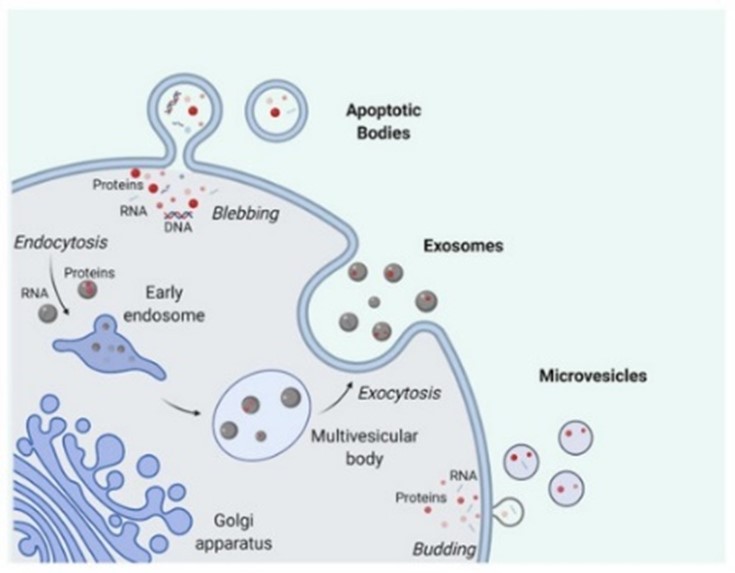In the course of normal homeostasis, all cells release extracellular vesicles (EVs) into blood, depending on the physiological context and underlying disease states. Extracellular vesicles (EVs) are important players in cell-cell communication, tissue homeostasis, cell differentiation as well as organ development and remodeling.
The most well-known type of extracellular vesicles (EVs) are probably microvesicles and exosomes but many more types of EVs, especially those with small size and high thrombotic potential have been classified on the basis of various criteria.
Because the concentration and composition of EVs change with the course of a particular disease state, EVs have potential clinical applications, including the diagnosis of thrombosis.
However, extracellular vesicle detection, quantification and isolation are challenging.

